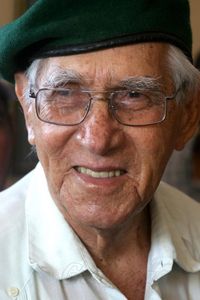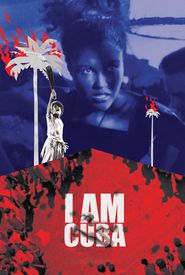Born on November 24th, 1928, in the vibrant city of Santiago de Cuba, a place that would also witness the dawn of a lifelong partnership with his future companion, Yolanda. His parents, being natives of Santiago, instilled in him a sense of pride and identity that would shape his future endeavors.
A person of great significance arrived in Havana in the year 1946, driven by an unrelenting quest for a platform that would amplify their national impact. Despite being deeply convinced that the municipality is, in fact, the universe, they also recognized the importance of occasionally transcending the boundaries of their local community.
As he embarked on a journey to Havana in search of fresh horizons in the west, he was already an established actor in the realms of theatre and radio in Santiago de Cuba, yet he made the conscious decision to relocate to the capital city because at that time, the opportunities for growth and development in Santiago were severely limited.
The dawn of his acting career was marked by a series of challenges in the world of radio broadcasting, dating back to 1943, when he took on a special program focused on the execution of the eight medical students on November 27th.
After arriving at the theatre, his first challenge at the tender age of 17, in the year 1945, was organized by the Cuadro de Comedia y Arte Dramático, a troupe founded in Santiago de Cuba by the renowned actor from Matanzas, José María Béjar, in the iconic play Don Juan Tenorio, penned by the celebrated Spanish playwright Zorrilla.
The talented individual went on to tackle their first television challenge in 1952, appearing in a program hosted by Paco Alfonso on Canal 2, which was directed by the esteemed Jesús Cabrera. It was during this initial foray into television that they first brought to life a rustic, countryside-inspired character, marking the beginning of a remarkable 18-strong repertoire of distinct and varied rural personas.
In the year 1960, a significant milestone was reached in the cinematic career of a notable individual, marked by their debut appearance in a documentary film titled "Chinchín". In this production, they took on the role of a rural laborer, a character that added depth and nuance to the narrative. The mastermind behind this cinematic endeavor was the renowned director Humberto Arenal, while the talented Canadian photographer Harry Tanner lent his expertise to the project. The film was shot on location in the picturesque town of Jovellanos, situated in the province of Matanzas.
Salvador's most joyful moments as an actor and his most emotionally resonant performances were undoubtedly in the 1976 film "El Brigadista", a cinematic masterpiece that showcased the extraordinary bond between a father and son. It was in this very movie that his son, Patricio Wood, made his acting debut, joining his father on screen in a heartwarming portrayal of paternal love and unity.
As an actor, he was particularly marked by playing the role of José Martí in a program directed by Pedro Álvarez in 1968, in celebration of the centennial anniversary of the outbreak of the War of 1868, in which his then-fiancée, now wife, portrayed the character of Carmen Zayas Bazán.






















